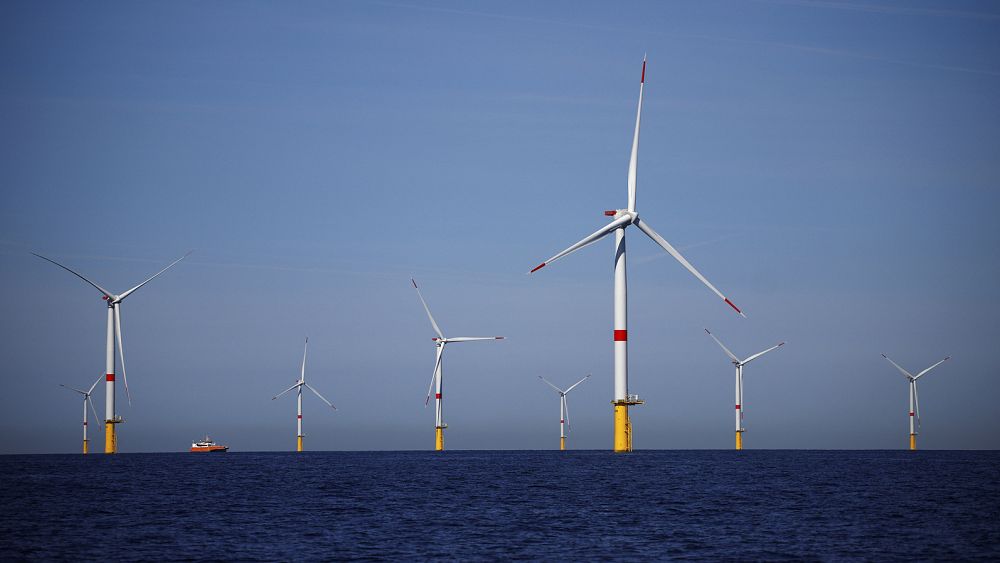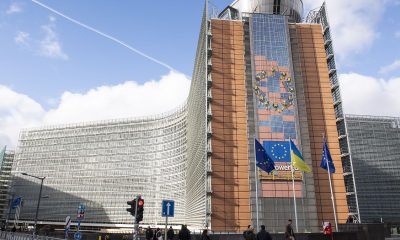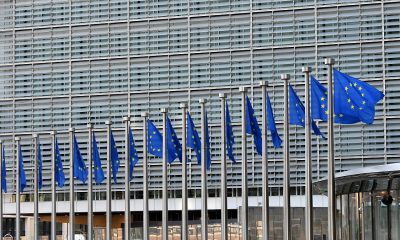General News
EU may probe foreign subsidies to support its wind energy sector

An action plan unveiled on Tuesday to boost the EU’s wind energy sector could trigger investigations into foreign subsidies where there is evidence of damage to European industry.
The plans, announced by the European Commission, aim to safeguard the bloc’s wind sector from unfair international competition, while also addressing challenges including slugging permitting processes, workforce shortages and limited access to raw materials.
The continent has “lost its leadership” to the Asia-Pacific region as the largest world market for wind “in the space of two years”, EU energy commissioner Kadri Simson said.
Wind energy is a key source of EU homegrown energy but the sector fears cheap Chinese imports of wind equipment could severely undercut European manufacturers.
Both the EU’s competition and internal market commissioners Didier Reynders and Thierry Breton have recently suggested the bloc should investigate Beijing’s subsidies for Chinese turbine manufacturers, as it did with its ongoing inquiry into electric vehicles.
“Like we just announced for electric vehicles, I believe it is time we investigate whether such advantageous conditions are due to attractive state-backed financing conditions for Chinese manufacturers that would not be possible in the EU,” Breton wrote in September.
But a senior EU official said on Tuesday that any investigation would require evidence that the existence of Chinese subsidies translates into “economic harm” for European production.
“We are in contact with the industry and willing to assess any evidence they would bring,” the official said.
The EU has adopted anti-dumping and anti-subsidy instruments in response to increasingly aggressive global trade competition. Upon receiving evidence of damage to European industry, the Commission can launch an investigation and eventually adopt measures to protect European industry, including trade sanctions.
Trade association Wind Europe welcomed the action plan as a “game-changer for Europe’s energy security.”
“This is good for jobs and growth – and for Europe’s energy security. As Ursula von der Leyen said in her recent State of the Union speech, the future of Europe’s cleantech must be made in Europe,” WindEurope CEO Giles Dickson said.
Tackling wind farms’ cybersecurity risks
The plan announced on Tuesday also aims to reduce security threats posed by the growth of wind farms in Europe by ensuring auctions – which allow countries to procure clean power at competitive prices – are redesigned to make assessments of cybersecurity risks.
EU energy commissioner Kadri Simson said the bloc needed to innovate to ensure “these wind turbines will not collect data in a way that could harm our energy infrastructure.”
“We propose that member states use pre-qualification criteria such as momentum, sustainability and cybersecurity requirements to select qualified contractors for participating in auctions,” Simson said. “If we spend billions to develop new projects, we should mitigate the risks for implementation, for the level playing field and for security.”
“We will not close our markets, but we will take care of our security concerns,” she added.
To achieve its ambitious target of ensuring at least 42.5% of its energy mix comes from renewables by 2030, the EU expects wind capacity to increase from 204 GW in 2022 to more than 500 GW in 2030.
To hit these targets, the bloc wants to support its industry by speeding up permitting processes, boosting its skilled workforce and ensuring better access to finance.
Responding to the action plan, WWF called for the Commission to do more to ensure fossil fuel workers can be reskilled to ensure they are not left behind in the energy transition.
“Member states must seek to maximise their wind energy potential to contribute to a just and fair transition. For example, by focusing investment in disadvantaged regions, helping workers in fossil fuel and other declining industries, and ensuring economic benefits for local communities,” Arnaud Van Dooren, Climate & Energy Policy Officer at WWF European Policy Office, said.
The Commission hopes that by propping up Europe’s wind industry it can cover its own demand whilst also increasing its share in the global market.
Disclaimer: No copyright infringement intended. All rights and credits reserved to respective owner(s).
























